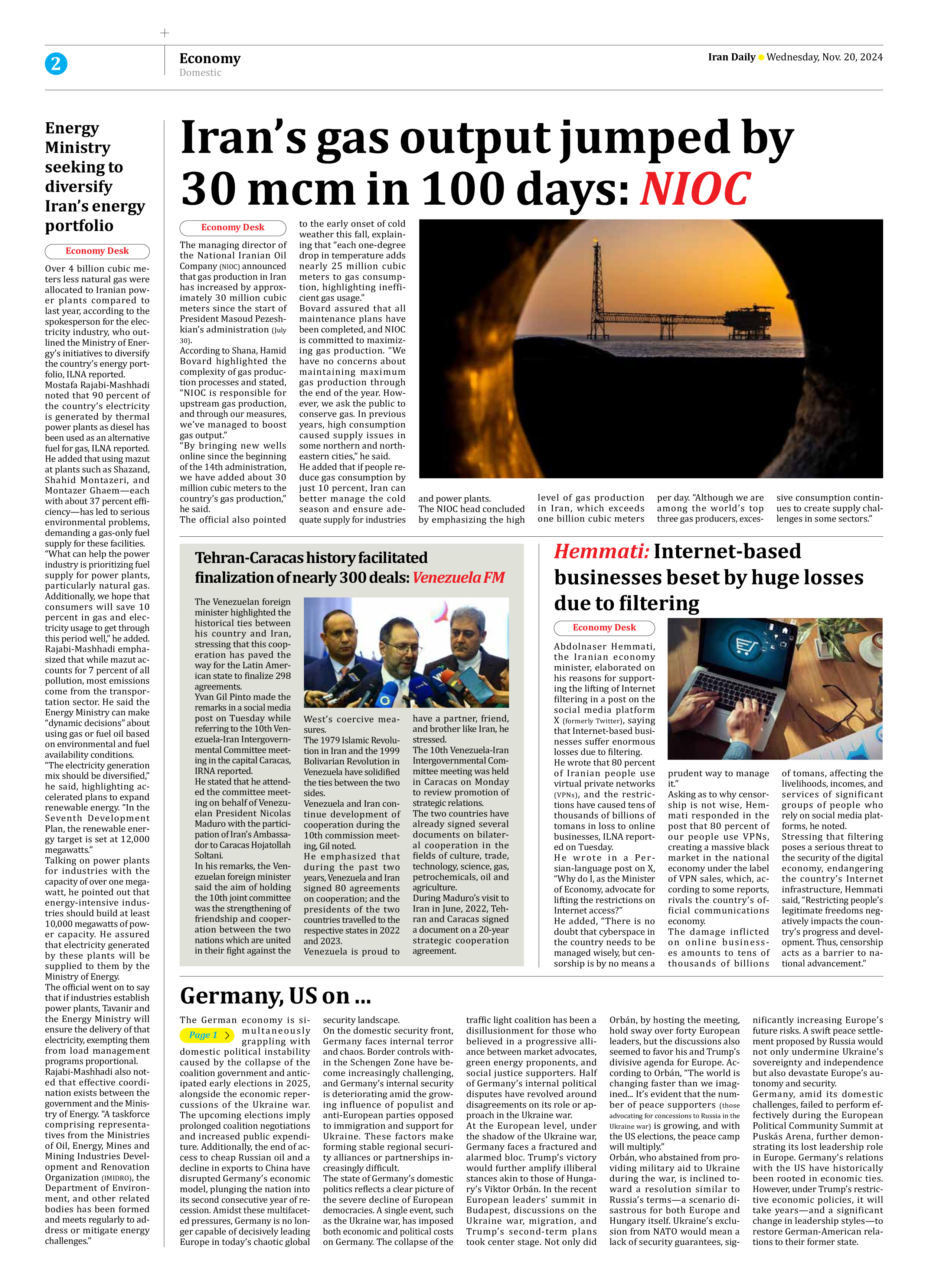
Germany, US on ...
Page 1
The German economy is simultaneously grappling with domestic political instability caused by the collapse of the coalition government and anticipated early elections in 2025, alongside the economic repercussions of the Ukraine war. The upcoming elections imply prolonged coalition negotiations and increased public expenditure. Additionally, the end of access to cheap Russian oil and a decline in exports to China have disrupted Germany’s economic model, plunging the nation into its second consecutive year of recession. Amidst these multifaceted pressures, Germany is no longer capable of decisively leading Europe in today’s chaotic global security landscape.
On the domestic security front, Germany faces internal terror and chaos. Border controls within the Schengen Zone have become increasingly challenging, and Germany’s internal security is deteriorating amid the growing influence of populist and anti-European parties opposed to immigration and support for Ukraine. These factors make forming stable regional security alliances or partnerships increasingly difficult.
The state of Germany’s domestic politics reflects a clear picture of the severe decline of European democracies. A single event, such as the Ukraine war, has imposed both economic and political costs on Germany. The collapse of the traffic light coalition has been a disillusionment for those who believed in a progressive alliance between market advocates, green energy proponents, and social justice supporters. Half of Germany’s internal political disputes have revolved around disagreements on its role or approach in the Ukraine war.
At the European level, under the shadow of the Ukraine war, Germany faces a fractured and alarmed bloc. Trump’s victory would further amplify illiberal stances akin to those of Hungary’s Viktor Orbán. In the recent European leaders’ summit in Budapest, discussions on the Ukraine war, migration, and Trump’s second-term plans took center stage. Not only did Orbán, by hosting the meeting, hold sway over forty European leaders, but the discussions also seemed to favor his and Trump’s divisive agenda for Europe. According to Orbán, “The world is changing faster than we imagined... It’s evident that the number of peace supporters (those advocating for concessions to Russia in the Ukraine war) is growing, and with the US elections, the peace camp will multiply.”
Orbán, who abstained from providing military aid to Ukraine during the war, is inclined toward a resolution similar to Russia’s terms—a scenario disastrous for both Europe and Hungary itself. Ukraine’s exclusion from NATO would mean a lack of security guarantees, significantly increasing Europe’s future risks. A swift peace settlement proposed by Russia would not only undermine Ukraine’s sovereignty and independence but also devastate Europe’s autonomy and security.
Germany, amid its domestic challenges, failed to perform effectively during the European Political Community Summit at Puskás Arena, further demonstrating its lost leadership role in Europe. Germany’s relations with the US have historically been rooted in economic ties. However, under Trump’s restrictive economic policies, it will take years—and a significant change in leadership styles—to restore German-American relations to their former state.







